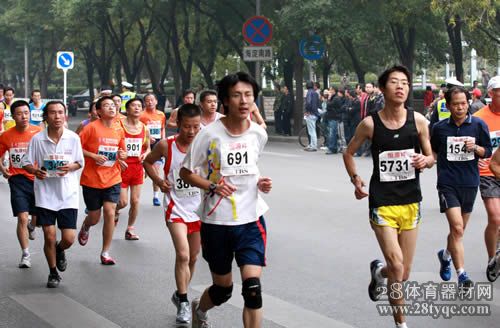
Since 2013, over 50 officially registered marathon events have taken place in China each year, alongside a similar number of mountain cross-country races. These events have evolved into a major championship within the sports world. As runners race through the streets, they’ve turned into a massive movement, with millions participating and hundreds of millions watching via live broadcasts or television. This phenomenon has become one of the most significant cultural and social trends in China since 2008.
Two years ago, while representing a sports media group in the U.S. to negotiate the Chinese rights for "Runner’s World" with Rockdale Group, we believed in the potential of running, even if we didn’t foresee how quickly it would take off. Running has been popular in the West for decades. As a universal human activity, it was only a matter of time before it gained traction in China, especially with the country's growing economy and improved living standards. Now, this simple act—something humans were born to do—has achieved global recognition. Is football still the king of sports? Maybe not anymore.
Marathon is more than just a sport—it's a container for health, weight loss, self-expression, and even a way to invest in well-being. But beyond that, the surge in marathon culture in China is driven by a dynamic between urban white-collar workers and city governments. There are deep shifts happening in society and values behind this trend. For cities, hosting a marathon costs around 10 million yuan, but the government only covers security, traffic control, and emergency services. Other costs are managed by private contractors. With widespread media coverage, it becomes an effective, low-cost form of urban branding and tourism promotion, all while promoting national fitness.
On the other side of this dance are the white-collar professionals. They spend their days trapped in crowded public transport, congested roads, and office cubicles, moving from one tiny space to another. The concrete jungle feels like a cage. Is the city really a zoo? Do people want to escape, even just for a weekend, to breathe freely?
Marathon doesn't solve life's complexities, but it offers a different way to engage with society. On the 42.195 kilometers, there are no car noises, just the flame of self-liberation. Characters like Sun Dasheng, Pig, Transformers, Spider-Man, Iron Man, and Red Guards appear in creative costumes, turning the race into a vibrant parody of modern life. It's a huge show for city workers, almost unrelated to traditional athletics.
In 2014, nearly a million runners participated in marathons, but only 75,000 finished in under six hours (compared to 540,000 in the U.S.). Most were there for the experience, not competition. Some serious runners include writers like Liu Zhenyun, artists such as Sun Nan, and entrepreneurs like Yu Liang and Pan Shiyi. They run to explore, reflect, or showcase leadership. Yet, these figures are just the highlights. The real backbone of the marathon scene is the white-collar class.
White-collar workers also drive a booming running market. A basic gear set can cost thousands—shoes, glasses, compression wear, and watches. According to "Runner’s World," the average American runner spends anywhere from $14,358 to $212,872 annually. In China, the range is much lower, from 14,100 to 1,101,900 yuan. White-collar workers fall somewhere in between. With the sports industry expected to hit 5 trillion yuan by 2025, this group is the main consumer force.
Beyond the spectacle, the marathon spirit also appeals to the thinking white-collar worker. Running helps them deal with personal doubts and crises. It's a philosophical journey between the old self and the new. Like a flame, it burns away boredom, anxiety, and pessimism. It's not about writing bestsellers, but about finding clarity in the chaos of daily life.
Running is also a tool for identity and confidence-building. Starting with fitness, it gradually changes behavior and mindset, evolving into a new lifestyle. It requires no applause, only personal effort. Every step on the 42.195K course represents perseverance, endurance, and determination. When you cross the finish line, you're not just completing a race—you're proving your strength to yourself.
Though white-collar workers have fueled the growth of marathons in China, they still represent only a small portion of the population. The Chinese marathon scene is still in its early stages. Comparing it to Taiwan, which has a population of 20 million and over 300 annual races, the mainland has a long way to go. With a population of 1.3 billion, it's only a matter of time before marathons surpass 100 events and attract over 2 million participants.
Many people fear marathons, but the truth is, with proper training, anyone can complete it in under six hours. Start slowly, build up the habit, and run 2–3 times a week for 6–10 km. The risk of sudden death is rare, usually linked to pre-existing heart conditions. To stay safe, get a medical check-up before starting.
If you're still lazy on the couch, you might be falling behind the times. But if you start now, you could still be part of the future. Run, and you may just find yourself in the right place at the right time.
Clothes Cleaning Items,Downy Laundry Detergent,Dreft Laundry Detergent,Laundry Detergent Sachet
ShangHai Youhang Technology Co.,LTD , https://www.yhecoclean.com